- Home
- Beverly Cleary
Jean and Johnny Page 16
Jean and Johnny Read online
Page 16
In the kitchen Homer took Jean’s coat after she had unpinned her camellia. “What kind of milk shake would you like?” he asked.
“I like any kind,” answered Jean, as she pinned the camellia, stem down, to her dress. She would not like to say she liked chocolate milk shakes if the Darveys did not have any chocolate syrup.
While Homer was opening the refrigerator, Jean looked around at the kitchen, which was larger than the Jarretts’. Instead of curtains, the windows had shades, made of pink-and-white striped ticking. I must tell Mother, thought Jean. Shades like that, instead of curtains, were attractive and would save a lot of ironing, too. Her mother could watch for a remnant of pink-and-white ticking…or yellow-and-white might look prettier in their kitchen….
Homer removed a carton of ice cream and a box of strawberries from the refrigerator. “We have bananas, too,” he said, “and there is a dish of pineapple in here if you like pineapple milk shakes.”
“They all sound good,” said Jean.
“I’ll tell you what I’ll do,” said Homer. “I’ll use all three.” He spooned ice cream into an electric blender and added a banana, a few strawberries, and a slice of pineapple. He flipped the switch, let the blender whir a moment, and poured two milk shakes into two tall glasses. “We even have straws,” he said, opening a cupboard.
“Paper-covered straws!” exclaimed Jean.
“That’s right,” said Homer. “All the comforts of a soda fountain.” He sat down at the table across from Jean, and together they peeled the paper from their straws and began to sip their milk shakes.
“Mmm. Good,” said Jean. “Banana-strawberry-pineapple milk shakes are my very favorite from now on.” It was fun to be sitting in a kitchen that looked like a magazine illustration, drinking a milk shake that a boy had made. “You are right about the drive-in,” she said. “It is a crummy place. I just never thought of it that way, because…well, everybody goes there. I guess I thought liking the drive-in was compulsory.”
“You sure look nice in that dress,” said Homer.
“Why—thank you, Homer.” Jean had not expected him to be the kind of boy who would notice a girl’s dress.
“I like it because it is sort of streamlined,” said Homer seriously. “It isn’t a lot of material cluttered up with stuff.”
Even though Jean laughed at Homer’s masculine description of her dress, she found it pleasant to have a boy appreciate her appearance.
“The color is nice too,” said Homer. “Plain and not a lot of swirls and swooshes and little pink rosebuds, like most girls wear.”
Jean smiled at him over her milk shake. “I am sure my sewing teacher would like to hear you describe girls’ dresses.”
“Maybe I don’t know the right words, but I know what I like.” Homer grinned at Jean and smoothed out the paper wrapper of one of the straws, which he handed to Jean. “Here is a souvenir for you.”
“Thank you,” she said gravely. There was something she very much wanted to ask Homer. She thought it over a moment and decided there was no reason why she shouldn’t ask. “Homer, tell me something. You and Johnny used to be friends. What happened?”
“Sure we were friends.” There was some bitterness in Homer’s voice. “My dad lets me take the car and Johnny’s dad won’t. Oh, sure, I know I used to think he was great and tagged around after him and all. He was popular and I guess I thought some of it would rub off on me.”
“But he took me out in his car once,” said Jean.
“Just once, and I’ll bet it was in the daytime,” said Homer. “His mother lets him take her car when his dad isn’t home. He had his license taken away because a cop picked him up for doing ninety on the freeway.”
“Johnny drove ninety miles an hour on the freeway!” Jean was shocked.
“And then Johnny got sore at me that night he asked to come over to see you. He wanted me to go along and I wouldn’t. I figured he asked you for a date, and you wouldn’t want me coming along, too.”
“That stormy night,” reminisced Jean. “I remember it rained all day.”
“And he said he didn’t want to walk to your house in the rain,” Homer went on, “and I said that was his problem. Johnny got sore, and after that he didn’t bother about me.” Homer grinned across the table at Jean. “I’ll bet he was sopping when he got there.”
Jean bit her lip and looked into her empty glass. “He didn’t get there, Homer,” she said quietly, hurt because Johnny had not been willing to go through rain and gloom of night to see her. She could not help thinking of her father, who delivered mail in all kinds of weather and even gave extra service to the people on his route without complaining.
“I’m sorry, Jean,” said Homer. “I didn’t know. Like I said, after that Johnny was sore at me and I didn’t think so much of him, either. And I got to thinking about a lot of things. Things like what was so wonderful about a fellow like Johnny and what was so wonderful about being popular. There are lots more interesting things to do besides hanging around a drive-in or cruising around town in a car.”
“Homer, does Peggy Jo have her own car?” Jean asked suddenly. “It seems to me I heard someone say something about it during the rehearsal of the variety show.”
“Yes, she does,” answered Homer. “A hard top.”
“Oh.” That explained a lot to Jean. Johnny did not want to bother going to a dance with a girl whose mother had to drive them. Now that she knew the real reason he had broken the date, the unhappy question lurking in the back of her mind was banished.
“What are we talking about Johnny for?” Homer demanded. “Johnny is Johnny’s greatest admirer.”
Why, that is true, thought Jean. Johnny liked Johnny, and the reason he had liked her was that she had been a good audience. An audience was important to Johnny, she realized, now that she looked back on the last few months, and she had certainly hung on every word he spoke. “Yes, let’s not talk about Johnny.” Jean unwound the wrapper of the straw from her finger. “Maybe I should be starting home. Dad said I had to be in by midnight.” Since she and Homer had left the dance, time had gone surprisingly fast. Jean had heard the Darveys’ guests leave some time ago.
“Sure, Jean,” said Homer with a grin. “I promised your father I would take good care of you.”
In the living room, while Homer got her coat, Jean said good night to Mr. and Mrs. Darvey.
“Good night, Jean,” said Mrs. Darvey. “I am so glad Homer brought you home. I hope you will come again.”
“Thank you.” Jean smiled shyly at this woman who liked a good rousing springtime. She could tell that Homer’s mother and father liked her. Awkwardly she unfastened the camellia from her dress and pinned it to her coat.
When Homer turned the car into the Jarretts’ driveway, he turned off the motor and switched off the lights. Jean waited for him to get out of the car, but when he did not, they sat in silence. Jean began to feel uncomfortable. Her mother and father and the people next door must have heard them drive in and might be thinking that Jean, on her first date, was parked in the driveway with a boy.
“The people next door just had their house painted,” said Jean to break the silence, even though she knew Homer would not be interested.
Homer did not answer.
“I mean—you can still smell the paint,” said Jean, because a girl had to say something at a time like this. “I thought you might have noticed it.”
Homer laid his arm across the back of the seat and turned to Jean. “Jean,” he said earnestly, “would you consider kissing me?”
“Kissing you!” The words were startled out of Jean. What a funny idea—kissing Homer. Jean’s impulse was to jump out of the car and run up the steps into the house.
“Yes,” said Homer seriously. “I wondered if you would be interested.”
Interested! Homer made kissing sound as impersonal as—as discussing a current event. Jean could not imagine kissing Homer. And if she did, with both of them wearing glasses there wo
uld be an unromantic clash of spectacle frames. Or did couples who both wore glasses say, Excuse me while I remove my glasses? And if they did, then what did they do? Hold them? Or pull out their cases, fold their glasses, and put them away, saying, Now I am ready to be kissed. Had Homer thought of this, she wondered. The way he was behaving, they would probably have an impersonal discussion of the problem. Jean, he would say, since you have agreed to kiss me, perhaps we should remove our glasses. Yes, Homer, she would answer, that is an excellent suggestion. Oh. What was she thinking of anyway? She wasn’t going to kiss Homer.
“Well?” said Homer. “You haven’t answered.”
“Why I…” Jean did not know what to say. She did not want to hurt his feelings, because she liked him. And anyway, she had probably already hurt his feelings by sounding horrified when he mentioned kissing. She had not meant to sound that way, but in her surprise she could not help it. “I mean…Well, no thank you. What I mean is, this is just our first date and everything—” Jean stopped. Would he think she expected him to ask her for a second date? Or would he—this was worse—think she was leading him on? What was a girl supposed to do at a moment like this? She wished she knew.
“I didn’t think you would,” said Homer seriously, “but I didn’t think it would hurt to ask.”
“No, I guess it doesn’t hurt to ask,” said Jean, so relieved to get through this awkward moment that she felt for the second time that evening a wild desire to giggle. Elaine would die laughing. Except that this time she was not going to tell Elaine, because even though she thought the situation was funny, there was something so likable about Homer that she would not want anyone to make fun of him. Not ever.
A square of light from a bedroom window fell on the driveway, telling Jean that her father must have turned on the bedroom light to look at the time. The car clock said ten minutes to midnight.
“Homer, I think I had better go in,” said Jean.
Homer got out of the car, went around, and opened the door for her. This time Jean could not bear to shove her feet into her pumps. She picked up her shoes and her florist’s box and stepped out of the car in her stocking feet. They walked up the steps and when Jean had unlatched the door she stood with one hand on the knob. Her parents, she was sure, would hear the click of the lock and know that she was about to come in. “Thank you for going to the dance with me,” she said, feeling that this was proper, because she had extended the invitation. With etiquette out of the way, she laughed and said, “I know the dance was pretty awful, but I really did have a good time at your house. I loved seeing your pigeons and the milk shake was fun, too.”
“I’m sure glad you asked me,” answered Homer. Then he hesitated. “Jean—would you like to go out again sometime? With me, I mean?”
“Yes, Homer, I would,” answered Jean.
“Swell.” Homer sounded both pleased and relieved. “Maybe next Saturday afternoon we could take the pigeons out over the hills and release them.”
“I would love to. And I—I hope your feelings aren’t hurt, or anything, because I didn’t—” ventured Jean, and stopped.
“That’s all right.” Homer understood what she was talking about. “Good night, Jean.”
“Good night, Homer. And thank you again for the flower.” Jean stepped into the living room, closed the door, started to turn off the light, remembered that Sue probably had not come in, and walked in her stocking feet to the kitchen, where she removed the bruised camellia from her coat and laid it next to a carton of eggs in the refrigerator. Then she tiptoed into the bedroom, sat down on the bed, and began to rub one aching foot.
So that was the way it was, Jean thought. A girl went out with a boy she did not much care about, and her evening did not turn out at all the way she had imagined. In many ways it was disappointing, even painful, and yet when it was over, it was all right. She liked the boy and he liked her. And she would be happy to go out with him again, even though no date with him would ever be the kind of date a girl dreamed about. Homer would always do and say unexpected, disconcerting things, but that was the kind of boy he was. And a girl would not have to analyze every remark, every quirk of his eyebrow, when she went out with a boy like Homer. She would not have to wonder if he liked her just a shade less than he had the day before if he happened to say Hi instead of Hi, Jean.
Jean was still sitting on the bed tenderly massaging her foot when she heard a car stop in front of the house, and in a few minutes the front door opened and Sue tiptoed down the hall.
“Hello,” whispered Jean.
“Hi,” answered Sue, silently closing the door. “Did you have fun?”
“Yes and no,” answered Jean. “Mostly yes. Did you?”
“Oh, yes.” Sue sighed, and dropped down on her own bed. “I had a wonderful time. Just wonderful. We saw The Great Train Robbery and some old Chaplin comedies.”
Jean thought she had never seen her sister look so pretty, and she knew that prettiness was not caused by old movies. Jean rose from the bed and walked gingerly to the closet. She wished she were floating on a cloud like Sue—then her feet might not hurt so much. She removed her coat and as she did so, she put her hand in her pocket and took out the paper covering from the straw. She hung her coat in the closet, but instead of throwing the straw covering into the wastebasket, she smoothed it out and read the words printed on it. Sanistraw. Pat. U.S. Off.
“You know something?” said Sue dreamily.
“What?” asked Jean, absently winding the flattened paper tube around her finger.
“Ken kissed me good night,” whispered Sue.
Jean looked curiously at her sister, radiant because Ken had kissed her. It must be a lovely feeling. “I guess Ken changed a lot as he grew up,” she reflected.
“Mm-hm.” Sue slipped off her coat and kicked off her shoes. “A whole lot. He makes the boys at school seem childish.”
“Sue, how did you feel that day you ran into Ken at the library?” Jean asked.
“Oh, I don’t know. Surprised that he had changed so much, and not sure what to say to him.” Sue pulled her dress off over her head.
“You didn’t feel all full of pinwheels at the sight of him?” persisted Jean.
“Pinwheels and Fourth of July sparklers? Of course not, silly. I just thought he had turned out to be an awfully nice boy,” said Sue.
“Do you think you would have liked him as much if you had gone out with him two years ago?” There was so much Jean wanted to know.
“You are certainly full of questions tonight,” answered Sue. “No, I don’t think I would have liked him very much two years ago. He wouldn’t have grown up enough. And now if you want first turn at the bathroom you had better stop playing with that piece of paper and get started.”
“You go first,” said Jean, still toying with the wrapper from the straw. Maybe that was what a lot of girls should do—all they could do, really—wait for the boys to grow up. And in the meantime there were other things to do…the things she and Elaine had always enjoyed doing together…and now there was Homer and his flock of pigeons.
Jean decided she really would keep the straw wrapper for a souvenir. She opened her top drawer and took out a Japanese lacquered box, which held the odds and ends she did not quite know what to do with but still did not want to throw away: her junior-high school graduation diploma, a paper napkin from a birthday party, a ballpoint pen that needed a refill. As she removed the box from the drawer, her eyes fell on the snapshot of Johnny that she had thrown into the drawer and half forgotten about. Now she picked it up and studied it critically. How charming he looked smiling into the camera, and how miserable she looked facing Johnny and trying to peek at the camera at the same time! All that was behind her now. The real Johnny would always do what Johnny wanted and never mind how other people felt. The Johnny she had admired was no more real than Kip Laddish on the television screen.
Jean started to tear the snapshot in two, hesitated, and looked at it a second time. Johnny, t
he boy she neither liked nor admired, and yet…she would never forget Johnny. It was Johnny who had noticed her, singled her out of the crowd, had made her feel that she was attractive. In a way, it was Johnny who had made her aware of herself. She could not forget that. If only Johnny had been a different kind of boy….
Jean picked up a pair of manicure scissors from the dresser and carefully snipped off her half of the snapshot and dropped it into the wastebasket. She lifted the lid of the lacquered box and dropped into it the wrapper of the straw. Her glance lingered on Johnny’s half of the snapshot, which she laid on top of the wrapper. Silently she closed the box and shut it in her drawer. Good-bye, Johnny, she thought. I am not sorry I knew you. Maybe she should be sorry, but she wasn’t. In her heart she knew she would remember Johnny. Always.
About the Author
Beverly Cleary is one of America’s most popular authors. Born in McMinnville, Oregon, she lived on a farm in Yamhill until she was six and then moved to Portland. After college, as the children’s librarian in Yakima, Washington, she was challenged to find stories for non-readers. She wrote her first book, HENRY HUGGINS, in response to a boy’s question, “Where are the books about kids like us?”
Mrs. Cleary’s books have earned her many prestigious awards, including the American Library Association’s Laura Ingalls Wilder Award, presented in recognition of her lasting contribution to children’s literature. Her DEAR MR. HENSHAW was awarded the 1984 John Newbery Medal, and both RAMONA QUIMBY, AGE 8 and RAMONA AND HER FATHER have been named Newbery Honor Books. In addition, her books have won more than thirty-five statewide awards based on the votes of her young readers. Her characters, including Henry Huggins, Ellen Tebbits, Otis Spofford, and Beezus and Ramona Quimby, as well as Ribsy, Socks, and Ralph S. Mouse, have delighted children for generations. Mrs. Cleary lives in coastal California.

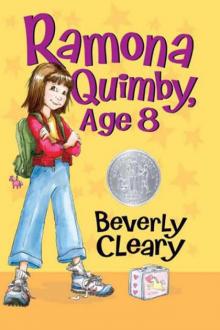 Ramona Quimby, Age 8
Ramona Quimby, Age 8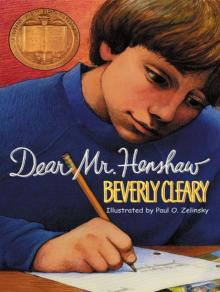 Dear Mr. Henshaw
Dear Mr. Henshaw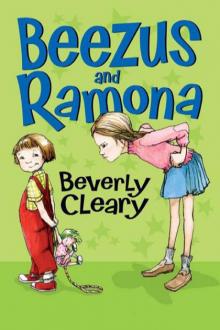 Beezus and Ramona
Beezus and Ramona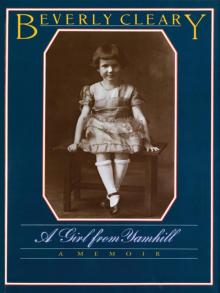 A Girl from Yamhill
A Girl from Yamhill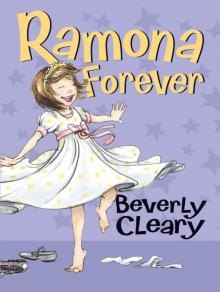 Ramona Forever
Ramona Forever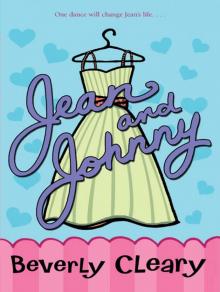 Jean and Johnny
Jean and Johnny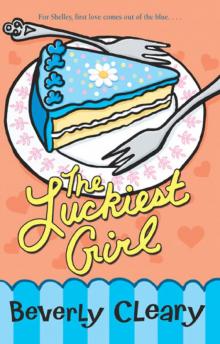 The Luckiest Girl
The Luckiest Girl Emily's Runaway Imagination
Emily's Runaway Imagination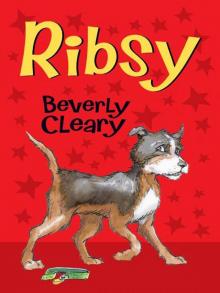 Ribsy
Ribsy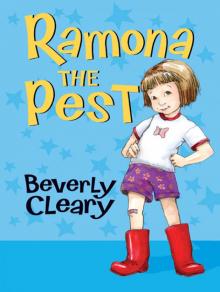 Ramona the Pest
Ramona the Pest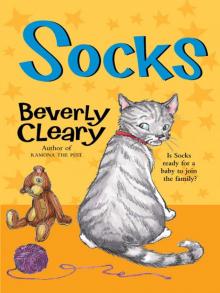 Socks
Socks Ramona's World
Ramona's World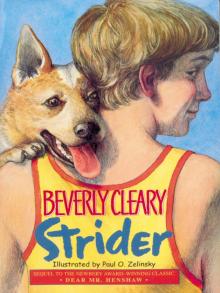 Strider
Strider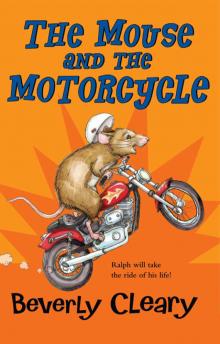 The Mouse and the Motorcycle
The Mouse and the Motorcycle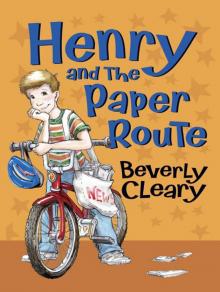 Henry and the Paper Route
Henry and the Paper Route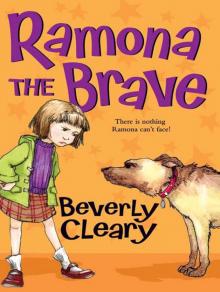 Ramona the Brave
Ramona the Brave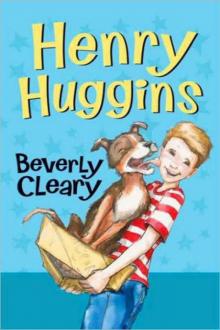 Henry Huggins
Henry Huggins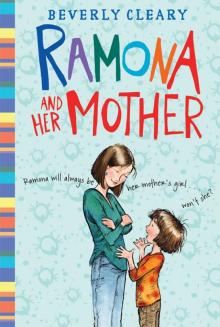 Ramona and Her Mother
Ramona and Her Mother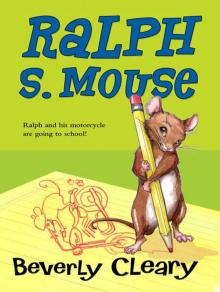 Ralph S. Mouse
Ralph S. Mouse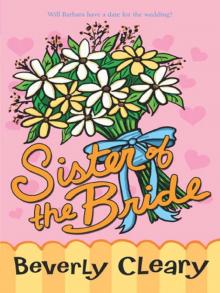 Sister of the Bride
Sister of the Bride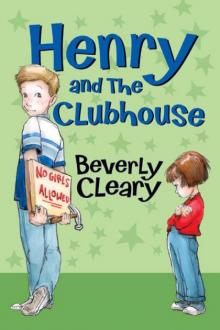 Henry and the Clubhouse
Henry and the Clubhouse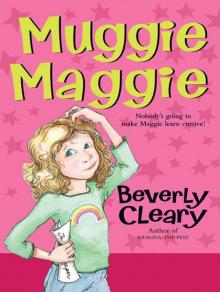 Muggie Maggie
Muggie Maggie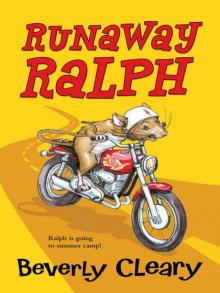 Runaway Ralph
Runaway Ralph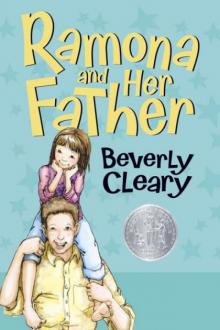 Ramona and Her Father
Ramona and Her Father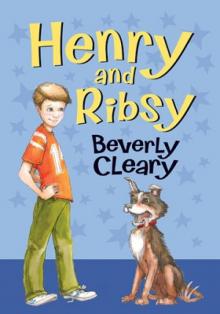 Henry and Ribsy
Henry and Ribsy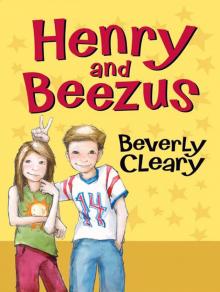 Henry and Beezus
Henry and Beezus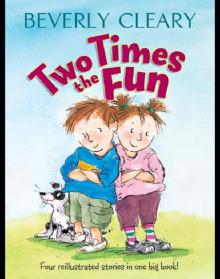 Two Times the Fun
Two Times the Fun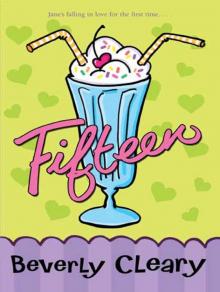 Fifteen
Fifteen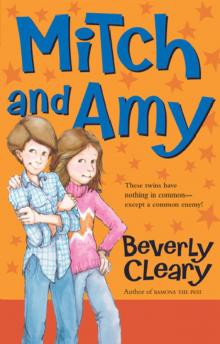 Mitch and Amy
Mitch and Amy